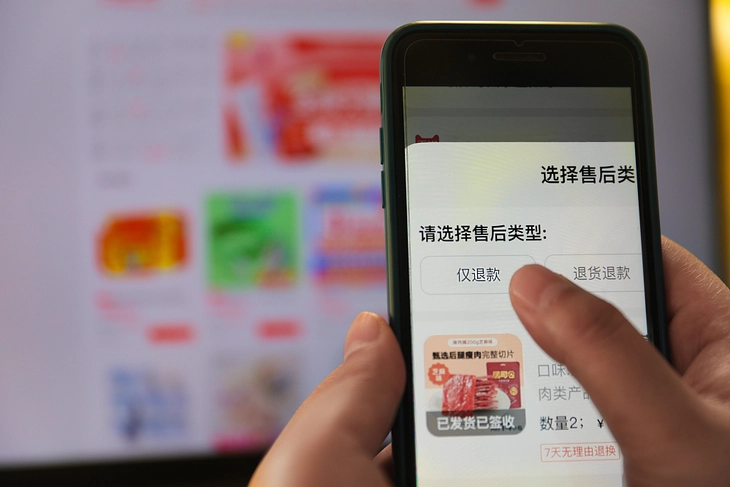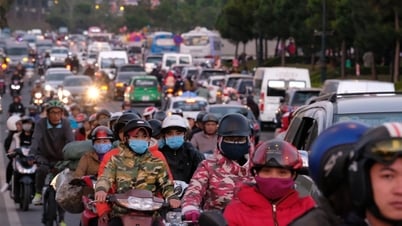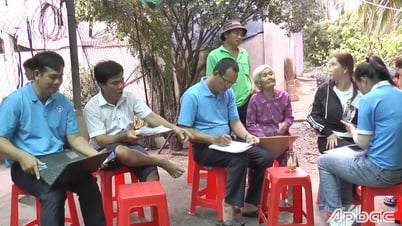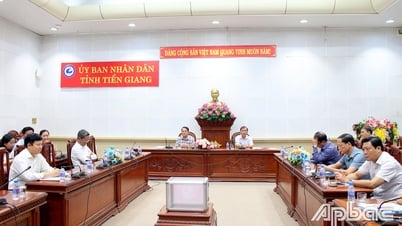
China requires e-commerce platforms to tighten policies that favor buyers, avoid loopholes that cause damage to sellers and affect the digital commerce ecosystem - Photo: THE PAPER
Controversial policy
According to Beijing Business Today on April 22, many major e-commerce platforms in China such as Pinduoduo, Taobao, Douyin, Kuaishou and JD.com are preparing to end the "refund only" policy - a form of refunding buyers without requiring buyers to return the goods, which has been controversial in this country.
As e-commerce platforms compete fiercely for market share in a saturated market, user experience is considered a key factor, according to a December 2024 report by China Central Television (CCTV) .
The "refund only" policy is therefore seen as a way to quickly meet consumer needs, helping to increase customer satisfaction and retention.
According to Beijing Business Today , Pinduoduo was the first to adopt a “refund-only” policy in 2021 to promote price competition. By 2023, other platforms such as JD.com, Taobao, Douyin, and Kuaishou also implemented a similar policy, as a common standard in the Chinese e-commerce industry.
However, after 4 years of existence, this policy is gradually being reviewed due to many problems and is expected to be officially abolished in the near future, after completing the approval process from the authorities.
From service standards to loopholes
According to The Paper on April 23, this policy was once promoted as a way to protect consumers when products were defective, counterfeit, or not as described.
However, many sellers report that they often suffer losses when buyers take advantage of the policy to demand money without returning the goods, especially when the platform tends to prioritize buyers and automatically refund if the seller does not respond within 48-72 hours.
Although the seller can still complain to the platform's customer service department afterwards, according to some shares, most reports do not receive a clear response or are refused to be processed by the platform.
This situation leads to the emergence of systematic profiteering, often referred to as “sheep-plucking” – a term that refers to the exploitation of policies for unjust profit.
According to Beijing Business Today , the number of lawsuits between sellers and buyers regarding unreasonable refunds has also increased significantly in recent years.
China's consumer mediation platform Dien To Bao said that more than 60% of seller complaints during the 11/11/2024 shopping season were related to this policy.
Tighten policy
Faced with this situation, since January, Deputy Director of the General Administration of Market Supervision and Regulation of China, Mr. Thuc Vi, has worked with representatives of domestic e-commerce platforms, requesting policy adjustments to avoid platforms unintentionally putting pressure on sellers and increasing unfair competition.
At the China's Two Sessions in early March, Luo Wen, director of the General Administration of Market Regulation, continued to emphasize tightening the management of the "refund only" policy, requiring platforms to clearly define the scope and conditions of application, and ensure the legitimate rights and interests of sellers.
In the near future, the handling of after-sales complaints in China's e-commerce industry is expected to rely more on direct agreements between sellers and buyers, instead of the one-way rules of the past.
Source: https://tuoitre.vn/nhieu-nen-tang-thuong-mai-dien-tu-trung-quoc-sap-khai-tu-chinh-sach-chi-hoan-tien-2025042314555335.htm


![[Photo] Readers line up to visit the photo exhibition and receive a special publication commemorating the 135th birthday of President Ho Chi Minh at Nhan Dan Newspaper](https://vphoto.vietnam.vn/thumb/1200x675/vietnam/resource/IMAGE/2025/5/17/85b3197fc6bd43e6a9ee4db15101005b)



![[Photo] Prime Minister Pham Minh Chinh chairs meeting on science and technology development](https://vphoto.vietnam.vn/thumb/1200x675/vietnam/resource/IMAGE/2025/5/17/ae80dd74c384439789b12013c738a045)
![[Photo] More than 17,000 candidates participate in the 2025 SPT Competency Assessment Test of Hanoi National University of Education](https://vphoto.vietnam.vn/thumb/1200x675/vietnam/resource/IMAGE/2025/5/17/e538d9a1636c407cbb211b314e6303fd)



















![[Photo] Nearly 3,000 students moved by stories about soldiers](https://vphoto.vietnam.vn/thumb/1200x675/vietnam/resource/IMAGE/2025/5/17/21da57c8241e42438b423eaa37215e0e)







































































Comment (0)